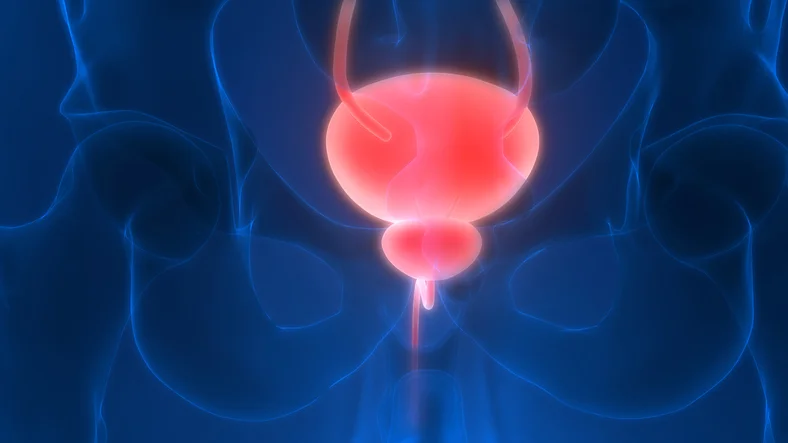When nerve damage causes neurogenic bladder
/When nerve damage causes neurogenic bladder
A condition called neurogenic bladder affects millions of Americans. Neurogenic bladder is when a person lacks bladder control due to brain, spinal cord or nerve problem. This can include people with multiple sclerosis (MS), Parkinson’s disease and spina bifida, and people who have had a stroke or spinal cord injury. Other causes can be major pelvic surgery and diabetes which can also damage nerves that control the bladder.
For most of us the act of urinating is a natural and necessary process we generally give little thought to. Our urinary system includes the kidneys and bladder. These are the organs that make, store, and pass urine. The balloon-shaped organ known as our bladder is held in place by pelvic muscles in the lower part of our abdomen and is the storage unit for urine.
How the bladder normally functions
Within and surrounding the bladder are various nerves. These nerves are important for controlling the muscles of the urinary tract which include the sphincter muscles that normally from a tight ring around the urethra to hold urine back until it is voluntarily released.
Normally, when the bladder is not full of urine it is relaxed. As it fills throughout the day, nerve signals in your brain will cause you to feel the sensation of the urge to urinate as the bladder becomes fuller. Once it does, you feel the urge to urinate which results in the brain telling the bladder muscles to squeeze or contract forcing the urine out through the urethra, the tube that carries urine out from the body. The sphincter muscles that keep the urethra closed so urine doesn’t leave the body before you are ready to eliminate it, will open up as the bladder contracts, allowing urine to be eliminated from your body.
How neurogenic bladder affects urination
Several muscles and nerves must work together for your bladder to hold urine until you are ready to empty it. Messages from nerves go back and forth between the brain and the muscles that control bladder emptying. If these nerves are damaged by illness or injury, the muscles may not be able to tighten or relax at the right time.
Neurogenic bladder is when there is impaired bladder functioning often the result of damage to the nerves that control the urinary tract for various reasons:
· The result of certain diseases such as multiple sclerosis (MS), Parkinson’s disease or diabetes
· Infection of the brain or spinal cord
· Ruptured or herniated discs
· Heavy metal poisoning
· Stroke
· Spinal cord injuries resulting in paralysis
· Major pelvic surgery
· People born with spina bifida
· Long-term effects of alcohol
Symptoms of neurogenic bladder
Every person with neurogenic bladder will have varying symptoms depending on the extent of the type of nerve damage they have. Some people can have symptoms of both overactive and underactive bladder which often occurs in people with MS, stroke and herpes zoster.
The symptoms of neurogenic bladder will have an effect on the quality of a person’s life making it difficult to get through the day without some type of urinary interruption. There can be issues of feeling afraid to go out in public with friends, take vacations or do every day things unless you are near a bathroom. It can also affect a person’s work life along with making them feel depressed and anxious.
Symptoms of neurogenic bladder include the following:
· Urinary incontinence that is characterized by the involuntary release of large volumes of urine or continuous dribbling of small amounts which can include bed-wetting
· Frequent urination
· Persistent urge to urinate despite recent voiding or having a constant feeling that the bladder is not completely empty
· Repeated urinary tract infections
Anyone having signs or symptoms of neurogenic bladder should talk to their healthcare provider to uncover what is causing the problem. They can help determine the cause and suggests ways to prevent neurogenic bladder leading to more serious bladder issues. This is done through a physical exam, possibly keeping a bladder diary of how often you go to the bathroom and wearing a pad treated with a special dye that changes color when you leak urine.
Treatment of neurogenic bladder
Even though neurogenic bladder can be a serious condition, when it is monitored closely and treated correctly, a person can see large improvements in the quality of their life. Treatment will depend on factors such as a person’s age and overall health, the cause of the nerve damage, the type and severity of symptoms, and a person’s tolerance for medications, procedures or therapies.
There are several lifestyle changes a person will often be advised to do to help treat neurogenic bladder which could include:
· Delayed voiding where a person delays urinating for a few minutes to help them learn how to put off voiding when they feel an urge
· Scheduled voiding where you follow a daily schedule of going to the bathroom at certain times of the day
· Double voiding is another technique in which you urinate and then wait a few minutes before trying to empty your bladder again. This may help if you can’t fully empty your bladder.
· Using what is called “quick flicks” in which you quickly squeeze and release the muscles in the pelvis several times whenever you get the urge to urinate. Doing quick flicks sends a message to the nervous system and back to the bladder to stop squeezing and to start relaxing helping the urge to urinate to lessen.

